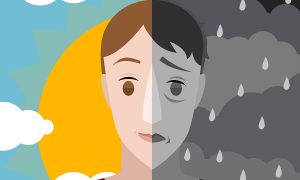
General overview
Menopause, otherwise climacteric, in simple terms, is a special phenomenon occurring in women and signifying the ultimate end of menstruation, just the opposite of menarche, which is the beginning of menstruation. In most cases, it is also the natural end of reproductive life. The age of menopause varies substantially among several populations and can be affected by genetic and environmental factors. However, menopause will usually occur between the ages of 45 to 55 years.
What happens at menopause?
During a woman’s lifetime, she is expected to shed about 500 eggs which are typically released via a hormone regulated monthly cycle. The whole process starts at menarche, around the time of her first menstruation, and the last phases of eggs are shed towards her menopause. At these two extreme ends other than active sexual life, the monthly cycles might be irregular due to body readjustment to hormonal changes.
Primarily at menopause, the production of the female sex hormones- estrogen and progesterone- by the ovaries drop. Throughout a lady’s reproductive life, these two hormones will be at the forefront of the regulation of her monthly cycles. However, these hormones sub serve some other functions outside the womb, which precipitate most of the other symptoms a woman may experience at menopause, outside the cessation of her monthly flow.
Symptoms and signs of menopause
Menopause as a natural process should not come with odd symptoms. In some women, some symptoms may become exaggerated requiring them to seek for medical help. Most of these symptoms will be magnified at the beginning of menopause during which body is still re-adjusting to the hormonal changes. The menopausal symptoms include:
- Irregular cycles and dysfunctional uterine bleeding due to change in hormonal levels.
- Vaginal dryness and lack of sexual urge.
- Vaginal atrophy.
- Osteoporosis and fracture tendencies due to estrogen insufficiency.
- Headache and hot flushes which is an acute feeling of heat, redness of the face, with increased heart rate which is also caused by drop in estrogen levels.
Other symptoms are: Weight gain, mood swings, sleep disturbances, anxiety, dryness of the skin and depression.
Factors that can influence the onset of menopause
Being a natural process, age is the major factor, usually occurring over time as the number of oocytes in the ovaries get exhausted. Some other natural and artificial processes can still influence the age of onset of menopause. Studies have shown that ladies who see their first period at a very tender age are likely to attain menopause at an earlier age, i.e early menarche can lead to early menopause. Outside the natural factors, previous use of oral contraceptives, obesity, tobacco smoking and alcohol intake, number of pregnancies during the reproductive life, physical activities as well as pathologies and surgical procedures of the ovaries or uterus can all affect the age of menopause.
Artificially using hormones to handle hormonal problems
Menopause is not a disease, therefore, it may not necessarily require medical interventions. But in some women where these menopausal symptoms become discomforting, there may be a need for lifestyle modifications to suite whichever of the symptoms that is most worrisome. Exogenous estrogens can also be used in the form of Hormone Replacement Therapy (HRT) to alleviate these symptoms, especially osteoporosis.
Onyeka, Nnaemeka Victor is a passionate content and copywriter. He is also a lover of poetry which have gotten him many publications.
Currently a clinical medical student, he has been privileged to get involved in so many philanthropic activities driven by passion to see a better world.
He simply loves writing, especially poetry and medical articles.


